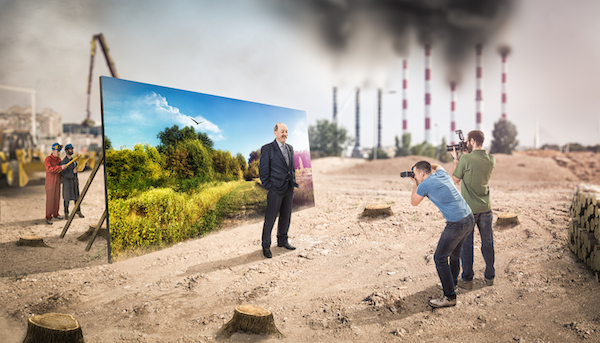
On 22nd April innumerable brands tried to amplify the message of our times. Mother Nature is chronically ill, if not terminally doomed, and the window of opportunity to reverse her near-sealed fate grows narrower by the week.
I’m all for Earth Day— anything that tries to get us talking about the need to change our damaging ways is surely a good thing. Nevertheless, as anyone at any PR agency knows, brands will be brands, and casting an eye over some of the activities this year makes that point clear.
Apple’s Earth Day Lessons is a case in point. Creating a series of educational apps which can help students explore, understand and value the planet seems like an excellent move, because it is. But the World Water Monitoring Challenge leaves a slightly bad taste in the mouth when you consider how many fresh resources have been poisoned by mining the rare minerals inside that iPad.
Similar criticisms could be directed at other tech giants like Nikon and Microsoft. And in many ways the sector pales into insignificance compared to the fashion world. With scores of labels, models and influencers using #EarthDay in posts you almost forget the industry creates more greenhouse pollution than every airline combined.
Speaking of which, Brand Celeb didn’t look much better. Emma Thompson flew over 5,000miles from LA to London to join the Extinction Rebellion climate protests. Which seems a bit much. Leonardo Di Caprio was also pretty vocal, despite being a member of the private jet party. And this is before we get to Elon Musk and Arnold Schwarzenegger.
Beer is rarely ecologically sound, either, yet booze did provide two Earth Day campaigns that showed some innovation. 100% renewably-powered Budweiser created custom radio ads that tracked wind direction, transmitting their message to locations en route— mapping media buy on the breeze, if you will, over a 96-hour period. Corona, meanwhile, commissioned Oscar-nominee Adam Pesapane to produce a hard-hitting stop motion film about the ever-growing plastic nightmare.
Most jarring of all, though, was PornHub, which launched a series dedicated to saving everyone’s favourite pollinator. BeeSexual is now an entire channel made of ‘bee porn’ videos. Every view equals a donation from the site to organisations fighting to protect one of the most vital creatures on the planet. This coming at the same time as adult entertainment is being linked to the decline of Western Civilization, with the UK’s ban about to come into effect.
All this raises an interesting quandary, or three. Should we scream ‘hypocrite’ at climate advocates whose individual behaviour strays from the Greenpeace guidebook? At what point does a company have the right to boast about green credentials— zero waste, carbon neutrality, offsetting? Is it not right to welcome any and all positive action in the struggle to save ourselves, even if it comes from smut-pedlars or notorious polluters?









